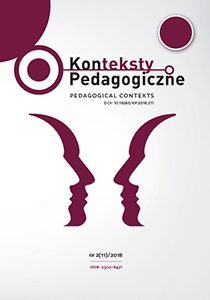Abstract
The article reveals the peculiarities of written English professionally oriented communication of IT specialists. In the framework of the main situ-ations of written English professionally oriented communication (business cor-respondence, correspondence with colleagues and managers) the functions of the communication realize: contact, information, inducing, cognitive, emotive, influencing ones and fence-mending. The genres of written English professio-nally oriented communication of IT specialists include: private and business e-mail correspondence, texting in chats and forums, posting on net announ-cement boards, memo, and reports. The main types of this communication are formal (communication with colleagues), semi-formal and formal communica-tion (communication with suppliers, clients, managers), analytical and scientific communication (reports). Each type of communication has its peculiar stylistic feature concerning lexical and grammatical presentation.
References
Castells, M. (1992). The Informational City. Economic Restructuring and Urban Devel-opment. New Jersey: Wiley-Blackwell.
Min, P. (2013). The Use of Multimedia Technology in English Language Teaching. A Global Perspective Crossing the Border. International Journal of Interdisciplinary Studies, 1, 29–38.
Motameedi, A., Barghi, Z. & Karimi, B. (2013). Comparison of the Efficacy of Three Methods of Direct Instruction, Computer Assisted Instruction to Reduce the Prob-lems of Students with Mathematical Disorder. Learn Disabil, 2, 76–100.
Moursund, D. (2005). Introductionto Information and Communication Technology in Education, https://darkwing.uoregon.edu/~moursund/Books/ICT/ICTBook.pdf. [accessed: 5.10.2018].
Mykytenko, N.O., Sulym, V.T. & Kozolup, M.S. (2017). Developing Academic Literacy. EAP for Scinece Majors. Lviv: IvsnFrankoLviv National University.
Samuels, H. (2013). “20th Century Humanism and 21st Century Technology. A Match Made in Cyberspace”. English Teaching Forum 51.3.
Shunhui, Z. (2010). Analysis of Language Features in Business Correspondences. Proceed-ings of the 2010 International conference on Information Technology and Scientific Management, file.scirp.org/pdf/20-1.76.pdf [accessed: 10.10.2018].
Razavi, A. (2013). New Topics in Learning Technology. Ahwaz: Chamran Martyr Uni-versity.
Бацевич, Ф.С.(2004).Основи комунікативної лінгвістики. Київ: Академія.
Бацевич, Ф.С. (2007). Словник термінів міжкультурної комунікації. Київ: Довіра.
Бугайчук, К.Л. (2011). Електронний підручник: поняття, структура, вимоги, http://www.journal.iitta.gov.ua [accessed: 15.09.2018].
Дедова, О.В. (2004). О специфике комп’ютерного дискурса. Русский язык. Исторические судьбы и современность: тезисы. Москва.
Ромашенко, В.Є. (2013).Комп’ютерний дискурс як засіб формування інформаційно-комунікаційної компетенції бакалаврів філології, www.irbis-nbuv.gov.ua/cgi../cgirbis.64exe? [accessed: 15.09.2018].
Смирнов, Ф.О. (2009). Искусство общения в Интернете. Москва: Издательский дом Вильямс.
Семеряк, І.З. (2016). Соціокогнітивний підхід до формування стратегій іншомовного професійно орієнтованого спілкування майбутніх програмістів з використанням Інтернету. дис. на здобуття наукового ступеня к.пед.н.: 13.00.02. Тернопіль.
Тарнапольський, О.Б. (2008). Методика навчання студентів вищих навчальних закладів письма англійською мовою. Вінниця: Нова Книга.
In accordance with the recommendation of the Ministry of Science and Higher Education, which aims to counteract the practice of “ghostwriting” and “guest authorship,” all authors submitting their text for publication should attach an author’s statement which declares the contribution of each of the authors to the article. The printed and signed statement should be delivered by mail or other means to editor-in-chief Joanna Skibska or sent in the form of a scan to the following e-mail address: redakcja@kontekstypedagogczne.pl. The authors will not receive remuneration for publishing their papers. The editors reserve the right to make minor editorial changes to the articles which will not affect the substance of the article. We encourage all authors to prepare their articles in accordance with the guidelines for manuscript preparation. Download pdf file.
Authors transfer all copyrights and grant the journal the right of first publication with the work simultaneously licensed under a Creative Commons Attribution License that allows others to share the work with acknowledgement of the work's authorship and initial publication in this journal. All authors agree to the publishing of their email addresses, affiliations and short bio statements with their articles during the submission process.

